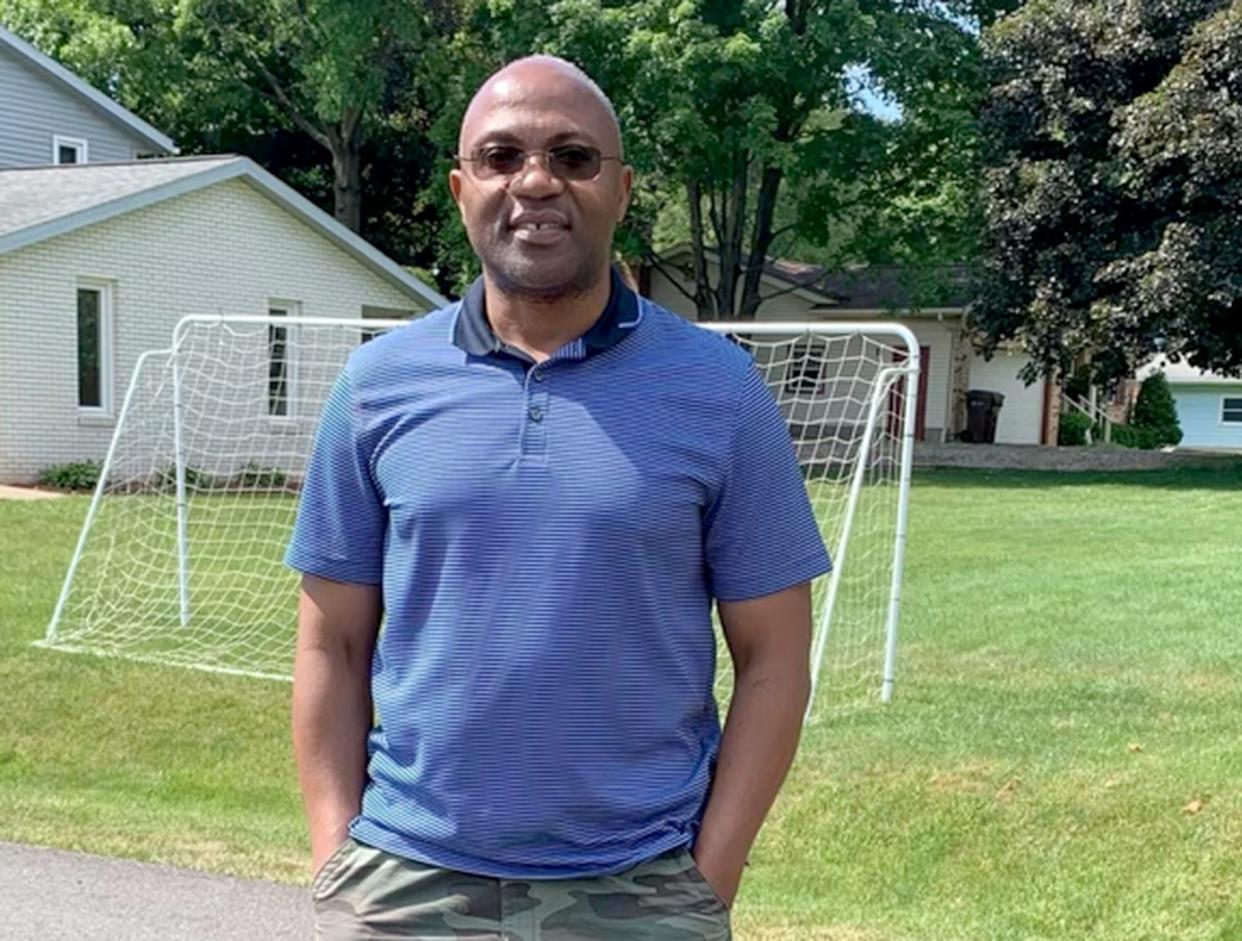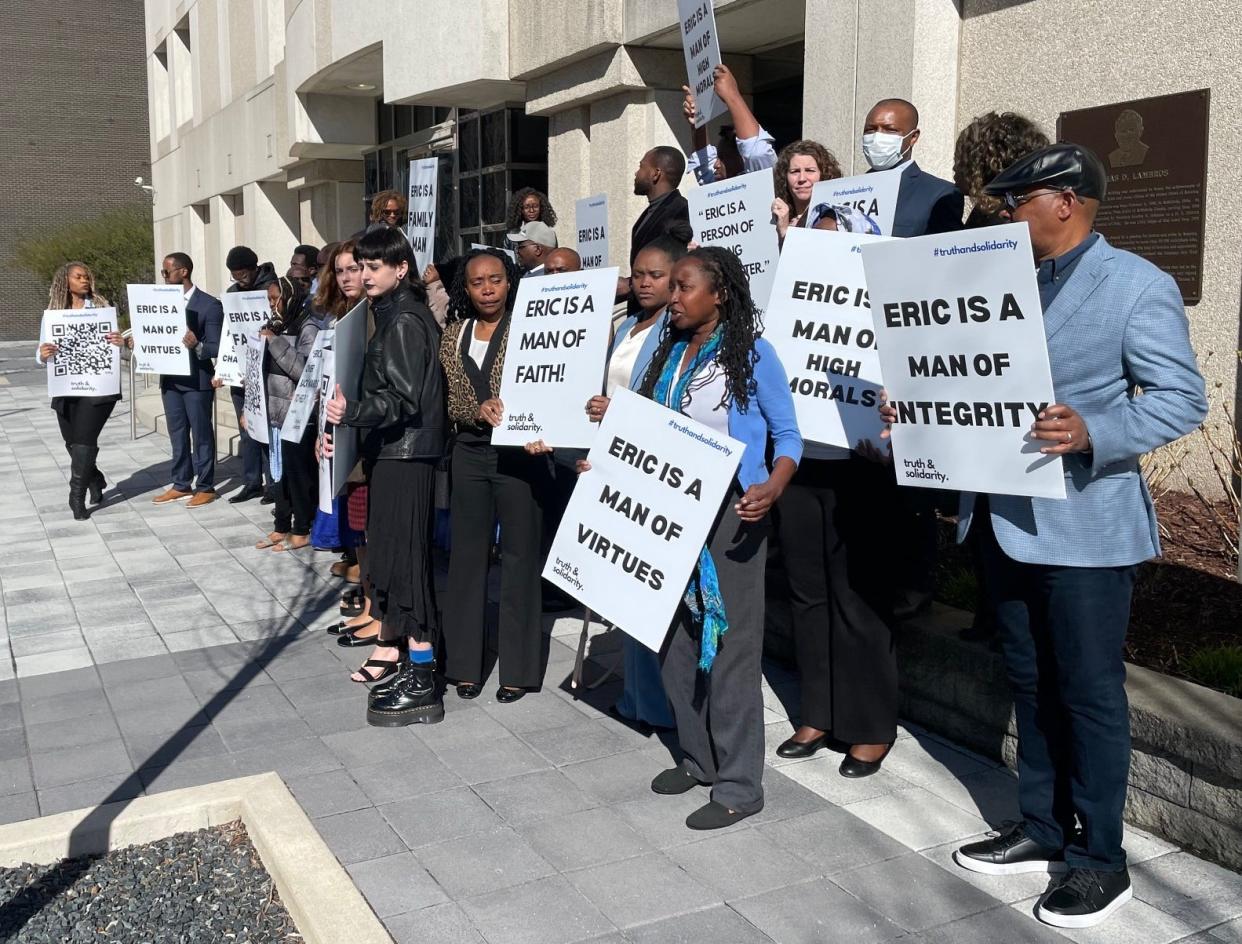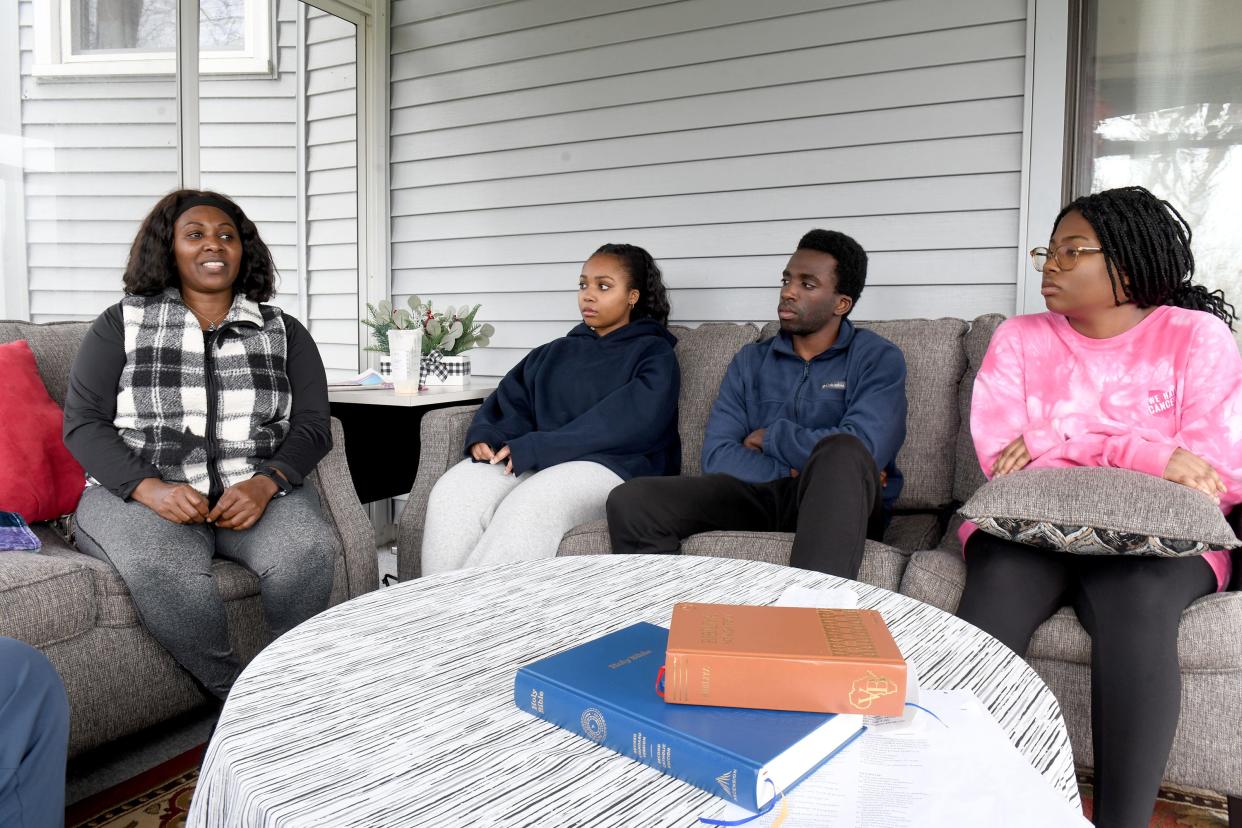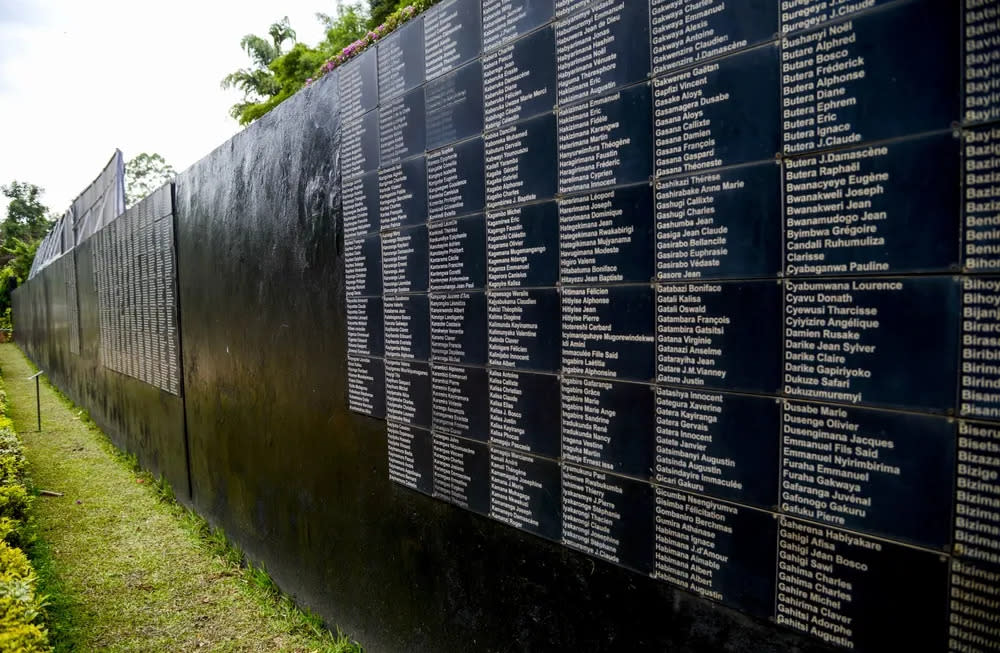Eric Nshimiye of Lake Township linked to Rwanda genocide by federal prosecutors

A Lake Township man accused of Rwandan genocide may be linked to a woman convicted last month of genocidal murder and three other crimes.
Eric Nshimiye, a married father of four and Goodyear Tire & Rubber Co. electrical engineer, was arrested at his home on March 21. Federal prosecutors say he's repeatedly lied about his past since fleeing the African country in 1994 to enter and remain in the U.S., eventually becoming a citizen in 2003.
The cases against the 53-year-old Nshimiye initially landed in Youngstown. However, they were since transferred to U.S. District Court in Boston. It's the same court where he testified on behalf of an old Rwandan friend who was convicted in 2019 of the same type of charges Nshimiye now faces.
Nshimiye's attorneys have asked the court to set a bond, so he can be free and available to help them present a defense for a future trial.
A hearing has not been scheduled.
Prosecutors oppose bond. They say Nshimiye should remain behind bars, so he can't flee the country. In a recent court filing, they linked him to Beatrice Munyenyezi, who operated a hotel and roadblock during the genocide.
"Ms. Munyenyezi is a genocidaire who had been convicted in the District of New Hampshire in 2013 of crimes similar to those the defendant faces in this case," Assistant U.S. Attorneys John T. McNeil and Amanda Beck wrote in the filing.
They explained that after she was convicted in New Hampshire and served 10 years in prison, she then was sent to Rwanda to face charges there.
"Notably, Ms. Munyenyezi was convicted for conduct in Butare, the same town in which (Nshimiye) is alleged to have perpetrated his crimes as a medical student." the prosecutors wrote. "Moreover, the government anticipates that it will offer evidence at trial in this matter which links the defendant to the hotel and roadblock which Ms. Munyenyezi controlled during the genocide."
Munyenyezi killed a nun during genocide

The office of acting District of Massachusetts U.S. Attorney Joshua S. Levy declined comment for this story. Nshimiye's attorneys, Kurt Kerns, of Wichita, Kansas, and Maksim Nemtsev of Boston, did not respond to requests for comment.
Prosecutors wrote that they expect to present evidence, which connects Nshimiye to Munyenyezi, at trial.
According to a recent story in The New Times, an English language Rwandan newspaper, Munyenyezi was convicted on April 12 in the Huye Intermediate Court. She was sentenced to life in prison.
She was found guilty of murder as a genocide crime, complicity in genocide, incitement to commit genocide, and complicity in rape.
The court said Munyenyezi killed a nun and instructed Interahamwe — a violent youth Hutu group, of which Nshimiye allegedly belonged — to kill a person named Aimable, according to the story.
She also encouraged the Interahamwe to kill Tutsis and played a key role in facilitating rape at her mother-in-law Pauline Nyiramasuhuko's hotel.
Munyenyezi's 2013 New Hampshire convictions were for lying about her past to secure U.S. citizenship. During those proceedings, she was accused of being a commander of a notorious roadblock where Tutsis were captured and killed, and for being the wife of an Interahamwe militia leader.

Nshimiye's family has said he's not guilty of any genocidal crimes; and that he wasn't even in Butare at that time. Friends, co-workers, family and even priests at St. Paul Catholic Church in North Canton — where the Nshimiyes are longtime members — have written letters on his behalf.
But prosecutors say he was in Butare. That he did kill and rape Tutsis. In court filings, they say he's effectively lived a lie in the U.S. for three decades. They're not concerned with the man Nshimiye is now. It's about who he was in 1994.
"Our refuge and asylum laws exist to protect true victims of persecution — not the perpetrators," Levy, the Massachusetts U.S. attorney, said in a press release after Nshimiye's arrest. "The United States will not be a safe haven for suspected human rights violators and war criminals."
Hutus, Tutsis and Nshimiye's alleged role
The 100-day Rwandan genocide began on April 7, 1994, the day after Rwanda President Juvénal Habyarimana and Burundi President Cyprien Ntaryamira, both Hutus, died when their plane was shot down.
The Tutsis were blamed for downing the plane and were targeted by Hutu extremists during the bedlam. However, moderate Hutus who tried to intervene to protect Tutsis, also died during the mayhem.
In arguing for bond, Nshimiye's attorneys said their client has no intention of fleeing. They said he was aware he was a suspect, since he testified on behalf of his former college roommate at the National University of Rwanda, Jean Leonard Teganya.
Prosecutors in Teganya's case accused Nshimiye of lying about his own background on the witness stand.
"The fact that Eric remained in the United States after the government’s accusation is concrete evidence of his commitment to remain with his family and to contest the charges against him," his attorneys wrote in their request for bond.

In previous court documents used to secure his arrest, the indictment for perjury, obstruction of justice; aiding and abetting and falsifying, concealing and covering up a material fact by trick, scheme and device, prosecutors presented details of Nshimiye's alleged Rwandan crimes, including that he:
Killed a 14-year-old Tutsi boy and helped kill the boy's mother.
Helped round up as many as 30 Tutsis in a forest near the university, killed them and burned their bodies.
Smashed a woman on the head with a nail-studded club, before he proceeded to hack her to death.
Bragged about killing a Tutsi tailor, while holding a bloody spiked club in his hand.
An estimated 800,000 Tutsis were killed during the genocide. Today, Rwanda's population is about 13.5 million. About 85% of the residents are Hutus, while Tutsis account for 14%.
Reach Tim at 330-580-8333 or tim.botos@cantonrep.com.On X: @tbotosREP
This article originally appeared on The Repository: Eric Nshimiye has alleged connection to woman who killed nun in Rwanda
